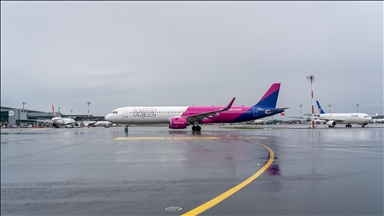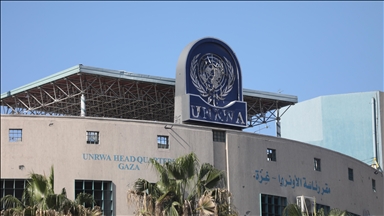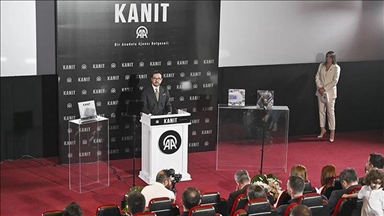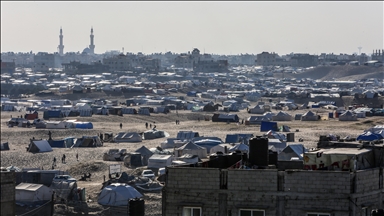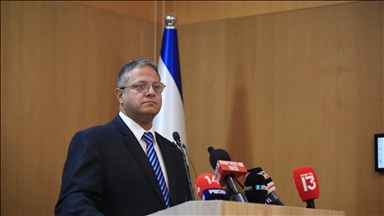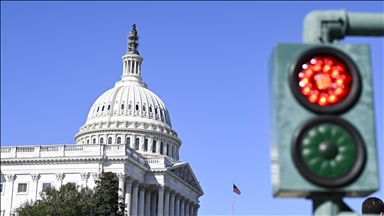Israel eyeing ties with Africa in exchange for know-how
Netanyahu continues charm offensive in Africa with offers of Israeli technological expertise
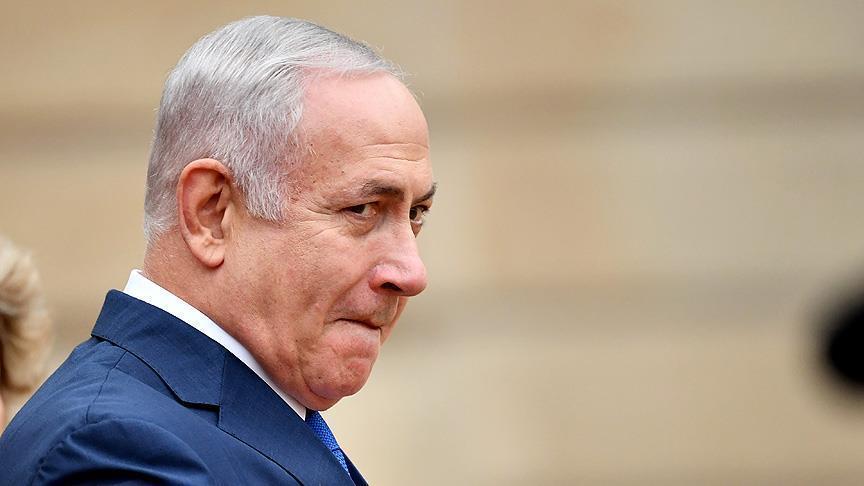
By Abdelraouf Arnaout
JERUSALEM
African countries hope that good relations with Israel will allow them to reap the benefits of Israeli know-how, especially in the security, technology and agricultural sectors.
Israel, for its part, wants good relations with Africa to expand its diplomatic influence, penetrate fresh markets, and temper Africa’s traditional support for the Palestinian cause at UN institutions.
Speaking to Anadolu Agency, Ofir Gendelman, a spokesman for Israeli Prime Minister Benjamin Netanyahu, said that developing ties with Africa “remains a priority for the prime minister, who is expending tremendous efforts to bolster Israel’s relations with African countries”.
“This week’s visit to Israel by Chadian President Idriss Deby was a major achievement for the PM’s Africa policy,” Gendelman said.
Two years ago, Netanyahu unveiled a policy aimed at achieving rapprochement with African states by offering the latter Israeli technological expertise.
“African countries want Israeli expertise, especially in the fields of IT, security and counter-terrorism, and agriculture,” Gendelman said.
“In return, Israel would like to broaden its diplomatic influence vis-à-vis strategically important African states, while also finding new markets for Israeli firms,” he added.
“African countries value relations with Israel, thanks to the latter’s diverse expertise in a range of fields,” Gendelman said.
Netanyahu also hopes that enhanced Israel-Africa ties will serve to temper what he describes as Africa’s “kneejerk support” for Palestinian political aspirations.
On Sunday, the Israeli Broadcasting Authority, citing Israeli political sources, reported that Israel was currently focusing on improving relations with Sudan.
Commenting on the report, however, Abdel-Sakhi Abbas, a leading member of Sudan’s ruling National Congress Party, told Anadolu Agency that Netanyahu “still cannot visit Sudan”.
In November of last year, Netanyahu visited Kenya, where he met with a host of African leaders. Five months earlier, he visited Liberia, where he participated in a meeting of the Economic Community of West African States (ECOWAS).
And in July 2016, the Israeli PM visited Uganda, where he met with the leaders of Uganda, Kenya, South Sudan, Zambia and Rwanda, along with his Ethiopian and Tanzanian counterparts.
In the same month, Guinea restored diplomatic relations with Israel following a 49-year hiatus.
According to Israeli political analyst Pinhas Anbari, Avigdor Lieberman, Israel’s recently-resigned defense minister (who also served as FM from 2009 to 2013 and from 2013 to 2015), was the first to call for a charm offensive in Africa after having failed to warm up to EU member states.
“Israel neglected Africa for many years, focusing instead on relations with EU states and the U.S.," Anbari said.
“But when Europe openly expressed its support for the establishment of a Palestinian state and its opposition to Israeli policy vis-à-vis the Palestinians, Israel made a strategic decision to focus on Africa,” he added.
“Israel’s offer of expertise now represents the cornerstone of its mission to enhance ties with Africa,” the analyst said.
“The agricultural technology now available to Israel is of great importance to many African states, who desperately need it,” Anbari explained, pointing to Chad in particular in this regard.
Ghana was the first African country to officially recognize Israel in 1956. By the early 1970s, Israel had established full diplomatic relations with 33 African states.
Following the 1973 war between Israel, Egypt and Syria, however, which led to an international oil crisis, most sub-Saharan African countries severed relations with the self-proclaimed Jewish state.
According to Israel’s Foreign Ministry, Arab states induced Africa’s boycott of Israel -- which was articulated by the Organization of African Unity (now the African Union) -- by promising to provide African countries with cheap oil and financial support.
At the time, only Malawi, Lesotho and Swaziland maintained full diplomatic relations with Israel, while other African states maintained contact with Israel through representative offices based in foreign embassies.
In the 1980s, Israel’s diplomatic relations with Sub-Saharan African states gradually resumed as Arab-Israel peace negotiations progressed.
By the late 1990s, Israel had managed to reactivate relations with 39 sub-Saharan countries.
Israel currently maintains full-fledged embassies in 10 out of 54 African countries, including Egypt, Ethiopia, South Africa, Nigeria, Kenya, Senegal, Angola, Ghana, Cote d'Ivoire and Cameroon.
According to Israel’s Foreign Ministry, Israel-Africa relations are multifaceted, boasting economic, commercial, cultural, agricultural, academic, medical, technological and humanitarian aspects.
The absence of progress in the Israel-Palestine peace process, however, appears to have stymied a genuine breakthrough in the Israel-Africa relationship.
Since 2014, peace talks between Palestinian and Israeli negotiators have been stalled due to Israel's longstanding refusal to halt settlement-building activity in the occupied West Bank and accept a “two-state solution” based on pre-1967 borders.
“Israel now hopes to ‘win over’ African states, at least in regards to the Palestine-Israel conflict,” Anbari said. “But it has so far failed to do so, despite limited breakthroughs here and there.”
Anadolu Agency website contains only a portion of the news stories offered to subscribers in the AA News Broadcasting System (HAS), and in summarized form. Please contact us for subscription options.


